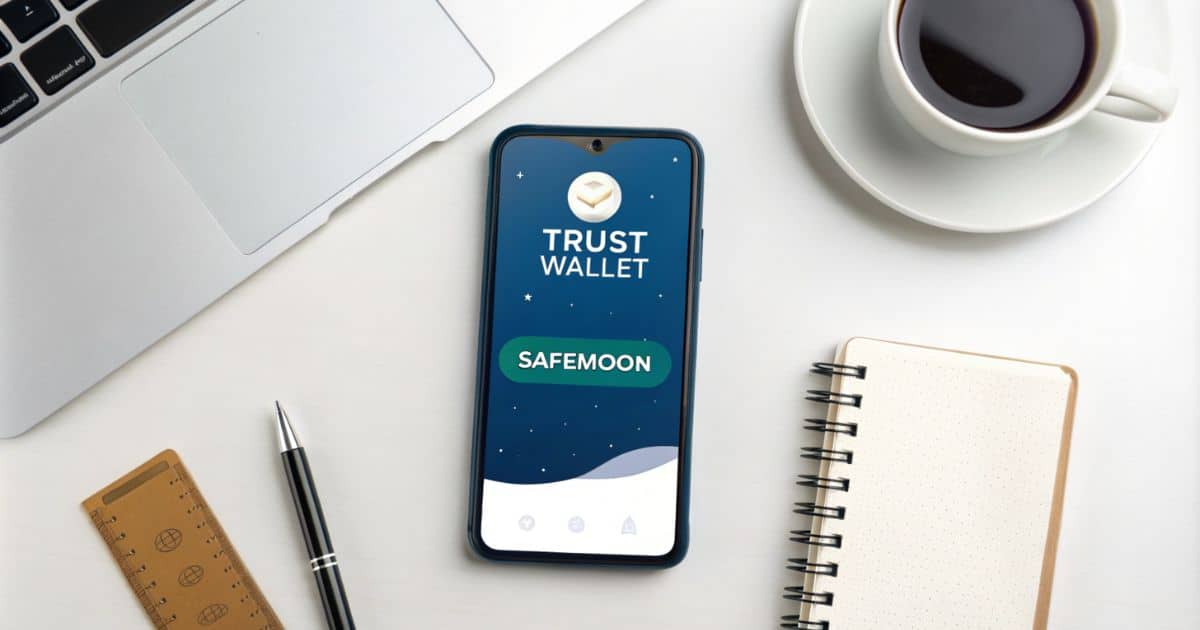Imagine a world where money isn’t tied to banks or governments. A world where your wealth is truly yours, protected by advanced technology. This isn’t just a dream; it’s our reality today, thanks to cryptocurrency and blockchain technology.
Since Bitcoin started in 2009, the world of cryptocurrency has changed a lot. It offers digital assets that change how we trust and see things. Blockchain, the core of this, creates a safe, decentralized space for deals. This guide will make these ideas clear, making your journey into digital currency both fun and useful.
Key Takeaways
- Cryptocurrency and blockchain technology are changing the financial and other sectors worldwide.
- Blockchain is a decentralized, safe ledger for transactions, ensuring openness and safety.
- Bitcoin, created in 2009, is the first cryptocurrency, leading to many digital assets.
- Cryptocurrencies are viewed differently by governments, like being legal property in Japan and banned in China.
- Knowing about cryptocurrency market trends and the tech behind them is key for smart investments.
What is Blockchain Technology?

Understanding blockchain technology is key to seeing its big impact. It’s the base for many cryptocurrencies, like Bitcoin. It offers a safe, open, and secure way for digital deals.
Definition of Blockchain
Blockchain is a special kind of ledger that’s shared among many computers. It keeps records of deals in blocks, linked by codes. This makes it different from old databases that keep everything in one place.
How Blockchain Works
Building blockchain involves complex steps to keep deals safe and fair. Miners solve hard puzzles to add new blocks. This makes the system safe and fair, without needing a single boss.
Every deal on blockchain is locked with digital signatures, making it hard to change. It’s also open for everyone to check, which builds trust. Also, how fast deals are confirmed can change, affecting how things work.
Key Terminology in Blockchain
- Cryptography: This is how we keep information safe with secret codes, which is crucial for blockchain.
- Distributed Ledger: It’s a database that’s spread out, making sure everyone has the same info.
- Decentralization: It means power and decisions are spread out, making things more fair and open.
- Immutability: Once something is on blockchain, it’s hard to change, keeping things honest.
- Consensus Mechanism: This is how all computers agree on the same thing, which is key for blockchain.
- Hard Fork: It’s when a blockchain splits into two, usually because of a big change in rules.
The Role of Cryptocurrency in Blockchain

Cryptocurrencies are key in the blockchain world. They help validate transactions and keep the network safe. These digital currencies use blockchain’s system for easy, global transactions.
Bitcoin and Its Significance
Bitcoin started in 2009 and is the most known digital currency. It has changed how we think about transactions. Bitcoin’s success has led to many other digital assets.
No one doubts the importance of Bitcoin in the world of digital currency. It has revolutionized how transactions are perceived, validated, and secured.
Other Popular Cryptocurrencies
Other big cryptocurrencies have come out since Bitcoin. Ethereum, for example, added smart contracts and dApps. This has made digital currencies more useful.
Stablecoins, like Tether, are tied to real money. They help keep things stable in the crypto world. This is good for DeFi.
- Ethereum: Known for its smart contracts and dApps, providing robust functionality beyond simple transactions.
- Stablecoins: Pegged to stable assets, they offer stability in the volatile crypto market, essential for DeFi applications.
- Ripple (XRP): Focused on improving cross-border payment systems, making international transfers more efficient.
- Litecoin: Often referred to as the silver to Bitcoin’s gold, it offers faster transaction times and a different hashing algorithm.
The variety of digital currencies shows the crypto market is lively and changing. Investors find many ways to trade. This growth is changing traditional finance and leading to new blockchain ideas.
Understanding Blockchain Security
Blockchain security is key to keeping blockchain networks safe and trustworthy. This system spreads data across many nodes, boosting security and control. It’s a big win for everyone involved.
Decentralization and Its Benefits
Blockchain’s decentralization makes it hard for hackers to tamper with data. With public blockchains like Bitcoin, every transaction is open for all to see. This openness makes it tough for hackers to pull off scams.
When the DAO was hacked, over USD 60 million in ether was stolen. This showed how important strong security is for blockchain.
Immutability and Transparency
Blockchain’s immutability means data can’t be changed once it’s in. This builds trust in blockchain systems. For example, IBM’s Food Trust uses blockchain to track food from farm to table, keeping data safe.
Blockchain’s openness lets everyone see and check transactions. This openness builds trust and openness in blockchain networks. IBM says security is key for blockchain success, especially for identity and access management.
Blockchain security is vital to stop fraud and cyber attacks. Bithumb was hacked, exposing data for 30,000 users and stealing USD 870,000 in bitcoin. Such attacks show the need for strong security measures.
Using a VPN, antivirus, and proper identity management can help protect blockchain networks. For more on blockchain security, check out Kaspersky’s guide on blockchain security.
As blockchain tech grows, so does the need for better security. Advanced security will keep blockchain safe, transparent, and unchanged. This is what makes blockchain so groundbreaking.
Applications of Blockchain Beyond Cryptocurrency

Blockchain technology is more than just for digital money. It’s being used in many ways to change how things work. This shows how versatile and powerful it can be.
Smart Contracts
Smart contracts are a big deal in blockchain. They are like digital contracts that run on their own. This makes things more efficient and reliable.
They cut out the middlemen, making things faster and cheaper. For example, Ethereum’s blockchain is used in many DeFi apps. This shows how far-reaching blockchain can be in finance.
Supply Chain Management
Blockchain is changing supply chains. Companies like Walmart use it to track products from farm to store. This makes it easier to find problems and build trust with customers.
It also keeps data safe, which is a big deal for businesses. You can learn more about this in articles like blockchain uses beyond cryptocurrency.
Healthcare Data Security
The healthcare world is also benefiting from blockchain. It keeps electronic health records safe from hackers. This is thanks to blockchain’s ability to keep data unchanged.
Companies like MedRec are leading the way in using blockchain for health records. It makes sure only the right people can see your medical info. This improves care by making sure doctors have the right information.
How to Invest in Cryptocurrency

Investing in cryptocurrency means understanding digital assets, market trends, and managing your investments. These are key for smart choices in the fast-changing financial world.
Choosing the Right Cryptocurrency
Choosing the right digital asset is crucial. Look at popular ones like Bitcoin and Ethereum. They can be traded through ETFs, like the Amplify Transformational Data Sharing ETF (BLOK), which has $702 million in assets.
Specialized exchanges like Coinbase and Binance offer more options. It’s important to know each cryptocurrency’s features and potential. This helps match your investment with your goals and risk level.
Understanding Market Trends
Watching market trends is essential. Cryptocurrency markets are very volatile. Success often comes from knowing when to buy and sell.
ETFs like the Siren Nasdaq NexGen Economy ETF (BLCN) offer a broad view of the blockchain industry. This helps diversify your portfolio. Stay updated with market news, regulatory changes, and tech advancements through trusted sources like Fidelity.
Using Crypto Wallets
Crypto wallets are vital for safe asset management. They are personal ledgers on the blockchain, for secure storage and transactions. There are hardware and software wallets, like Ledger and Trezor, and Exodus and Mycelium.
Choosing the right wallet depends on your security needs and transaction frequency.
The Future of Decentralized Finance
Blockchain technology is changing the world, making decentralized finance (DeFi) look very promising. DeFi uses blockchain to change old financial systems. It offers services that used to be only available through big banks.
Evolution of DeFi Applications
DeFi apps are growing fast, offering many financial services. These include exchanges, lending, and more. The World Bank found that 71% of people in poor countries now have bank accounts, up from 42% ten years ago.
Smart contracts are key to DeFi’s growth. MakerDAO, Compound, and Uniswap are changing finance with new products. These platforms have billions of dollars in value, showing how fast DeFi is growing.
Decentralized autonomous organizations (DAOs) also play a big role. They help manage DeFi protocols, making finance more open and fair. This change could greatly affect the future of finance.
The Role of Smart Contracts in DeFi
Smart contracts are at the core of DeFi. They make sure deals are fair and safe, without needing a middleman. They work on blockchain platforms like Ethereum, making finance more open and secure.
The Ethereum blockchain is key for DeFi. It makes sure all transactions are public, building trust. This makes DeFi more appealing than traditional banking.
Smart contracts also help create new financial tools. DeFi makes finance open to everyone with a crypto wallet and internet. For example, Ethereum’s DEXs like Uniswap offer better security and more access to money.
DeFi is changing finance with smart contracts. It makes finance more efficient and open. To learn more, check out Investopedia.
But DeFi faces challenges. Scalability and regulation are big issues. It’s also important to be careful of risks like hacking. Learning about DeFi from trusted sources is key for anyone interested.
Crypto Regulation Updates

The world of cryptocurrency rules is changing fast. Governments everywhere are making laws to protect investors and control digital assets. New rules are moving towards being more detailed and strict.
Key Regulatory Changes
Many states and countries have made big changes in their rules:
- In Alabama, new laws treat virtual and fiat currencies the same as money.
- Arizona has clear rules for crowdfunding and virtual coins under AZ Rev Stat § 44-1801 and AZ Rev Stat § 44-1844.
- Arkansas has given special permission to companies like Mythical, Inc. and River Financial, Inc. to work with digital assets.
- Colorado’s Digital Token Act makes some rules for crypto dealings easier.
Abroad, the UK’s Financial Conduct Authority is cracking down on crypto companies. They’re focusing on marketing and reporting issues.
Implications for Investors
These rule changes mean a lot for investors:
- They must follow stricter anti-money laundering laws and protect consumer standards.
- Investors must report their transactions and holdings to keep things clear.
- The changing market might impact how investors plan their strategies and the safety of digital assets.
With more legal fights, like the SEC’s cases against Coinbase and Ripple, it’s vital for investors to keep up with cryptocurrency regulations. This helps them navigate the complex and changing world of digital assets.
The Importance of Blockchain Security
Blockchain security is crucial in many fields, like banking and healthcare. As technology grows, so does the risk. Even though blockchain is strong, it can still face threats like 51% attacks on smaller networks. So, keeping it secure is always a priority.
Threats and Vulnerabilities
Blockchain faces many security issues, especially because it’s decentralized. The Pew Research Center found that only a quarter of Americans trust the government. This shows a bigger worry about digital safety. Booz Allen Hamilton also points out that we need to make blockchain data safer to fight against growing threats.
How Blockchain Addresses Security Concerns
Blockchain helps solve many security problems with its strong cryptography and consensus. Booz Allen Hamilton says this makes things more efficient and secure. Banks are also using blockchain for secure payments, which saves money and time.
The Department of Homeland Security is studying blockchain for online identity and access. This shows how important blockchain is for security. Its strong encryption and openness help fight fraud and tampering. For more on blockchain and cybersecurity, check out UpGuard.
Conclusion
The world of digital finance is changing fast. Cryptocurrency and blockchain technology are leading this change. They are making financial services and digital asset management better. The blockchain potential goes beyond just digital money. It brings more security, clearness, and speed to many areas.
Bitcoin is a big name in digital money. It has grown so much, with a value over $1 trillion. It’s also shaping how we see the impact of cryptocurrency and blockchain technology.
More people in the U.S. are getting into digital money. By mid-2023, 17 percent of U.S. adults had tried it. Some countries, like El Salvador, have even made Bitcoin legal money. But, it’s still not widely used.
Yet, 130 countries are thinking about their own digital money. This shows a big move towards digital currencies worldwide.
Blockchain’s effects go beyond digital money. It helps keep data safe, cuts down on fraud, and makes things more open. It’s key in keeping things honest in healthcare and supply chains.
As blockchain gets better, it will change how we do money and keep data safe. It’s becoming a key part of our economy and businesses.
Learn more about blockchain technology hereto grasp its beginnings and effects.
FAQ
What is blockchain technology?
Blockchain is a digital ledger that records transactions on many computers. It ensures security, transparency, and can’t be changed once recorded. It uses cryptography to link blocks of data.
How does blockchain work?
Blockchain uses blocks of data to record transactions. Each block is verified and linked to the next. This makes it secure and transparent.
What is the significance of Bitcoin in blockchain technology?
Bitcoin was the first to use blockchain for digital currency. It showed blockchain’s power for secure transactions. This led to other cryptocurrencies.
What are the benefits of decentralization in blockchain?
Decentralization means data is spread across many nodes. This makes it hard to tamper with and increases security. It also removes the need for a central authority.
How are smart contracts used in blockchain technology?
Smart contracts are self-executing contracts written in code. They enforce agreements automatically when conditions are met. This makes transactions more efficient.
What are the key considerations when investing in cryptocurrency?
When investing, choose cryptocurrencies that fit your strategy and risk level. Understand market trends and manage investments securely. Stay updated on regulations and market changes.
How has decentralized finance (DeFi) evolved?
DeFi has grown from simple transactions to complex financial services. It uses blockchain and smart contracts for lending, borrowing, and trading. This makes finance more efficient and accessible.
What are the recent regulatory changes in the cryptocurrency market?
New regulations include better anti-money laundering laws and consumer protection. They also require reporting transactions and holdings. These changes aim to protect investors and make the market more stable.
What are the common threats and vulnerabilities in blockchain security?
Threats include 51% attacks and flawed smart contracts. Attacks on smaller networks are also a risk. Efforts are needed to strengthen blockchain security.
How does blockchain address security concerns?
Blockchain uses cryptography and a decentralized system to ensure security. These features help detect and prevent data tampering. This keeps the blockchain trustworthy and secure.












